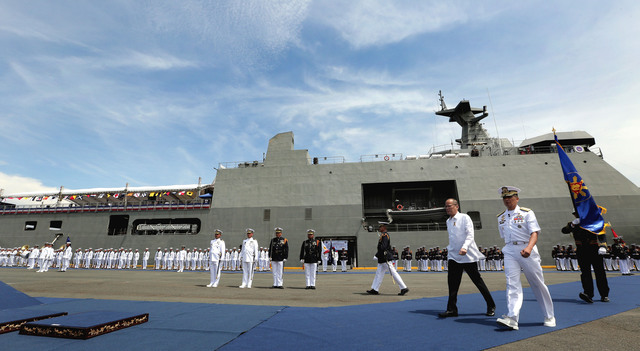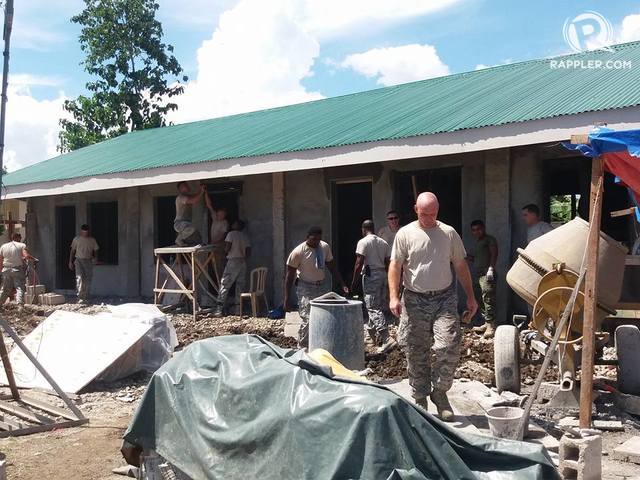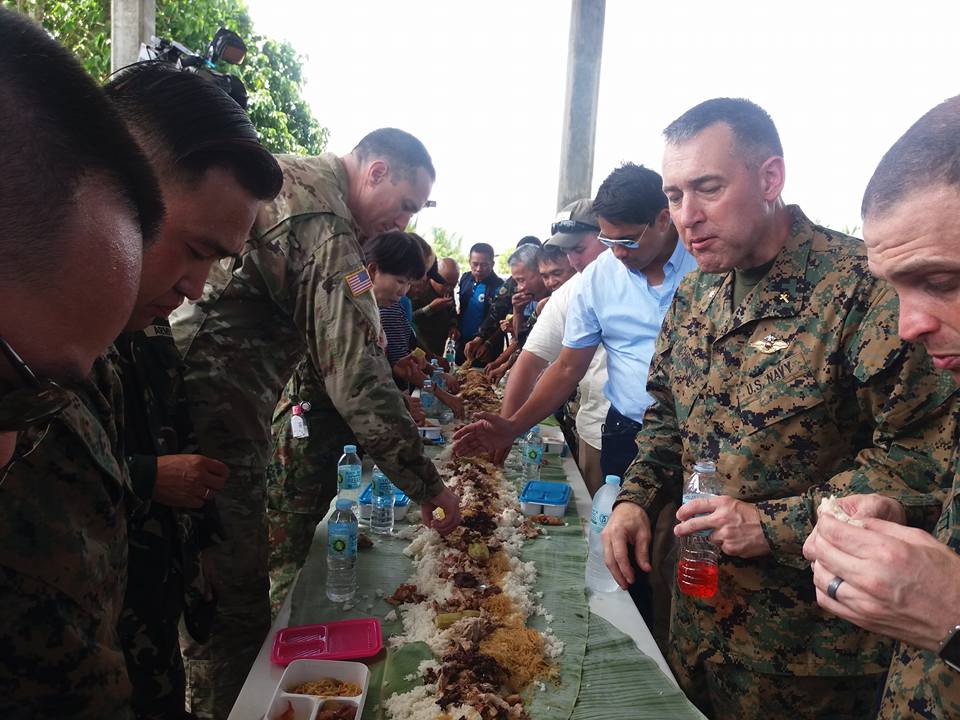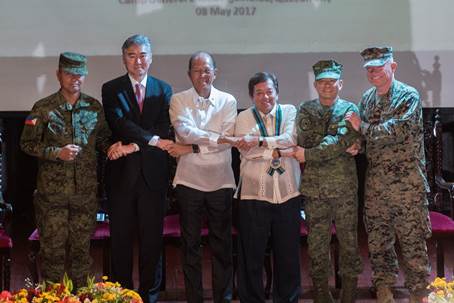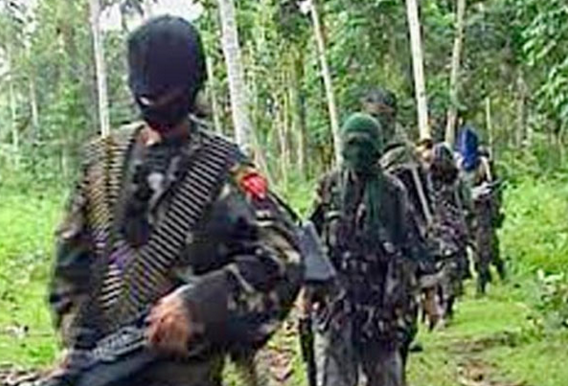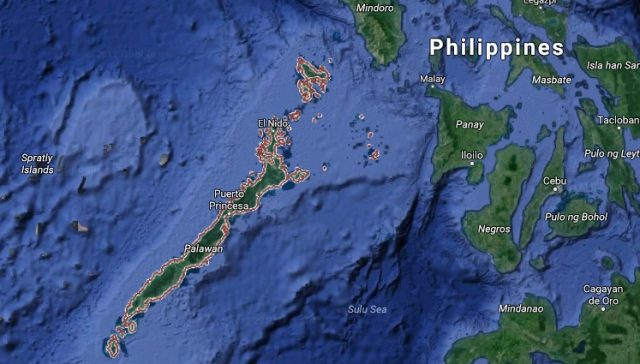Prof. Jose Maria Sison said Monday night that although he is the founding chairman of the 49-year-old Communist Party of the Philippines (CPP), he does not exercise control over the leftist group’s armed component, the New People’s Army (NPA), which has continued to engage government forces in armed conflict despite ongoing peace negotiations.
In a rare and exclusive interview with the Manila Bulletin (MB) editors Monday night through Skype from Utrecht, Netherlands, where he has been in exile for 31 years, Sison said “no one in Utrecht has ever claimed to control the revolutionary forces and people in the Philippines.”

(MANILA BULLETIN)
“No one in Utrecht can give orders to the CPP, NPA, NDFP (National Democratic Front of the Philippines) in the Philippines,” said Sison, who is the Senior Political Consultant of the NDFP.
The Philippine Government (GRP) and NDFP are in the thick of peace negotiations that were resumed in Oslo, Norway, last August, and will be on the fifth round of formal talks in Noordwick ann-see in the Netherlands from May 26 to June 2.
“The collective leading organs of the CPP, NPA, NDFP, which are based in the Philippines, are the principal of the NDFP Negotiating Panel. They give orders and instructions to the NDFP Negotiating Panel,” said Sison, who is more popularly known as “Joma.”
And while many regard him and Leftist stalwarts Luis Jalandoni and Fidel Agcaoli as the senior leaders of Communist movement, the 78-year-old Sison said that the leaders of the CPP, NPA, and NDFP “give orders to the NDFP Negotiating Panel and to the NPA in the battlefield.”
In fact, Sison pointed out, “there is nothing the NDFP Negotiating Panel can do if the order from its principal in the Philippines is to disengage from the peace negotiations.”
Jalandoni, 81, stepped down as NDFP Peace Panel chairman in October last year, and Agcaoili has taken over his post since then.
The NPA and government forces have figured in fierce, and often deadly, encounters since January after the two groups withdrew their respective unilateral ceasefires.
Both sides have also hurled accusations of violations of the Comprehensive Agreement on Respect for Human Rights and International Laws (CARHRIL) because of the skirmishes.
Despite this, Sison said he was still optimistic about the results of the peace negotiations to end 49 years of armed struggle by the Communist insurgents.
At the moment, Sison said, reaching a Comprehensive Agreement on Socio-Economic Reforms (CASER) is the pivotal point in the negotiations.
Discussions on the CASER, which are currently being held in the country, include issues on agrarian reform, rural development, and national industrialization.
“Malaki na ang inabante ng (There has been much progress in the discussion on) CASER,” Sison said,but much still has to be done to reconcile “87 pages of the drafts of the NDFP and 35 pages from the GRP.”
But he expressed confidence that the CASER could be signed before the end of the year, together with another pillar of the negotiations – the Comprehensive Agreement on Political and Constitutional Reforms (CAPRC).
“By the first quarter of 2018, we may already have the foundations for a Joint Bilateral Ceasefire,” he said.
In the meantime, Sison said, the Communist side continues to be open to “simultaneous and reciprocal unilateral ceasefire declarations” with the government as a “transitory measure” to put a stop to the armed conflict.
He underscored that this remains the position of the NDFP since a backchannel agreement was reached last March 1 in Utrecht.
NO TO CIMATU
Sison also slammed the appointment of former Armed Forces of the Philippines chief of staff Roy Cimatu as replacement for Gina Lopez as Environment and Natural Resources secretary.
He charged that the appointment of Cimatu, a native of Bangi, Ilocos Norte, was only made possible because of the concession given by President Rodrigo Roa Duterte to the Marcoses who helped him win in the 2016 presidential elections. Sison said Cimatu was a “very bad substitute, replacement” for Lopez.
“Kung ganyan ang Kongreso na di mo maasahan sa mga gustong ilagay ni Duterte sa kabineta, ano na ang maasahan mo sa (If Duterte cannot rely on Congress to approve the nomination of his choices for cabinet secretaries, what more with his priority) legislation?” Sison asked.
(MANILA BULLETIN)
“No one in Utrecht can give orders to the CPP, NPA, NDFP (National Democratic Front of the Philippines) in the Philippines,” said Sison, who is the Senior Political Consultant of the NDFP.
The Philippine Government (GRP) and NDFP are in the thick of peace negotiations that were resumed in Oslo, Norway, last August, and will be on the fifth round of formal talks in Noordwick ann-see in the Netherlands from May 26 to June 2.
“The collective leading organs of the CPP, NPA, NDFP, which are based in the Philippines, are the principal of the NDFP Negotiating Panel. They give orders and instructions to the NDFP Negotiating Panel,” said Sison, who is more popularly known as “Joma.”
And while many regard him and Leftist stalwarts Luis Jalandoni and Fidel Agcaoli as the senior leaders of Communist movement, the 78-year-old Sison said that the leaders of the CPP, NPA, and NDFP “give orders to the NDFP Negotiating Panel and to the NPA in the battlefield.”
In fact, Sison pointed out, “there is nothing the NDFP Negotiating Panel can do if the order from its principal in the Philippines is to disengage from the peace negotiations.”
Jalandoni, 81, stepped down as NDFP Peace Panel chairman in October last year, and Agcaoili has taken over his post since then.
The NPA and government forces have figured in fierce, and often deadly, encounters since January after the two groups withdrew their respective unilateral ceasefires.
Both sides have also hurled accusations of violations of the Comprehensive Agreement on Respect for Human Rights and International Laws (CARHRIL) because of the skirmishes.
Despite this, Sison said he was still optimistic about the results of the peace negotiations to end 49 years of armed struggle by the Communist insurgents.
At the moment, Sison said, reaching a Comprehensive Agreement on Socio-Economic Reforms (CASER) is the pivotal point in the negotiations.
Discussions on the CASER, which are currently being held in the country, include issues on agrarian reform, rural development, and national industrialization.
“Malaki na ang inabante ng (There has been much progress in the discussion on) CASER,” Sison said,but much still has to be done to reconcile “87 pages of the drafts of the NDFP and 35 pages from the GRP.”
But he expressed confidence that the CASER could be signed before the end of the year, together with another pillar of the negotiations – the Comprehensive Agreement on Political and Constitutional Reforms (CAPRC).
“By the first quarter of 2018, we may already have the foundations for a Joint Bilateral Ceasefire,” he said.
In the meantime, Sison said, the Communist side continues to be open to “simultaneous and reciprocal unilateral ceasefire declarations” with the government as a “transitory measure” to put a stop to the armed conflict.
He underscored that this remains the position of the NDFP since a backchannel agreement was reached last March 1 in Utrecht.
NO TO CIMATU
Sison also slammed the appointment of former Armed Forces of the Philippines chief of staff Roy Cimatu as replacement for Gina Lopez as Environment and Natural Resources secretary.
He charged that the appointment of Cimatu, a native of Bangi, Ilocos Norte, was only made possible because of the concession given by President Rodrigo Roa Duterte to the Marcoses who helped him win in the 2016 presidential elections. Sison said Cimatu was a “very bad substitute, replacement” for Lopez.
“Kung ganyan ang Kongreso na di mo maasahan sa mga gustong ilagay ni Duterte sa kabineta, ano na ang maasahan mo sa (If Duterte cannot rely on Congress to approve the nomination of his choices for cabinet secretaries, what more with his priority) legislation?” Sison asked.
http://news.mb.com.ph/2017/05/10/negotiators-do-not-control-npa-joma/

